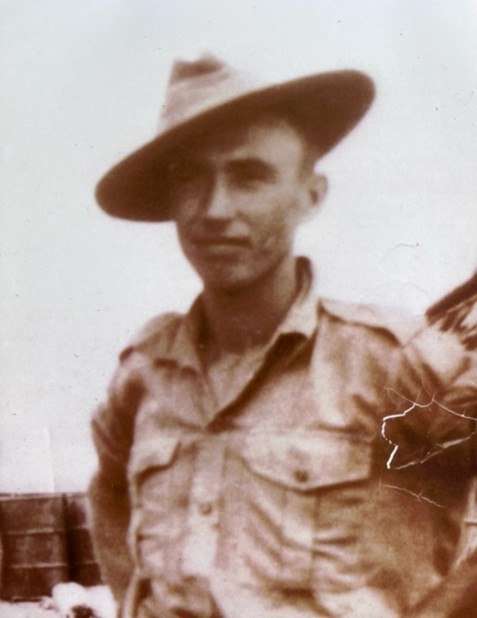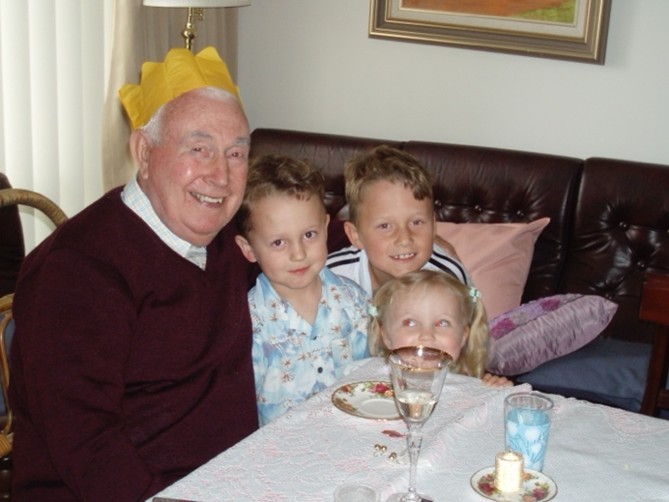2025 | Volume 26 | Issue 5

Author: Dr Glendon Farrow OAM FRACS
This September marked the 80th anniversary of the end of World War II. The war in Europe ended on 5 May 1945 with Germany’s surrender, but Japan fought on until 2 September. The Americans coined the phrase ‘Greatest Generation’ to describe the men and women who fought and died for an idea—freedom from tyranny.

My story is about one of them: VX77875 Ron Gooding—my father, Lionel Farrow.
Lionel was born in Bacchus Marsh in 1925. His mother died when he was 10, and he spent his teenage years moving between relatives, often sleeping on verandas in Collingwood. He was a good footballer, once turning out for Collingwood Schoolboys in borrowed boots stuffed with newspaper. Like many of his generation, he grew up in the shadow of the Great Depression.
In March 1942, at just 16, he enlisted under the name Ron Gooding, claiming to be 18. Darwin had been bombed weeks earlier, and although he said he joined because there was “nothing else to do,” the threat of invasion surely played a part.
By the end of that year, he was a signaller with the 6th Division, rushed to Port Moresby and then to Wau with the 17th Brigade.
The Battle of Wau in January 1943 remains one of the least-known yet most crucial of the New Guinea campaign. Wau, a small mining settlement on a mountain plateau had a vital airstrip. It was initially defended by only 240 Australian commandos. The Japanese advanced from Lae with 3000 troops, determined to seize it and dominate the skies over Port Moresby.
Reinforcements were desperately needed. US Dakotas flew in under appalling conditions, the strip often shrouded in cloud and under fire. Some crashed on landing. My father flew in with the 2/6th Battalion. Just a mile away, the Battalion was already locked in fierce combat. ‘A’ Company was virtually destroyed as 17 Brigade prepared for a desperate stand along the airfield itself.
Then the weather cleared. Dakotas streamed in, disgorging men of the 2/7th Battalion, who ran straight into firing positions. They carried two 25-pound artillery pieces. The Japanese launched frontal assaults in massed waves, but the guns quickly stopped them. Within days they were pushed back, retreating along the Markham Valley all the way to Lae. Their hopes of conquering New Guinea were finished. It was, to quote Wellington at Waterloo, “a near run thing.”
My father rarely spoke of what he saw. He helped clear bodies from crashed Dakotas at Wau and was haunted by the memory. In 1944 he served as a despatch rider with the 2/8th Battalion at Aitape and Wewak, where the Japanese still fought fanatically despite the war’s turning tide.
There he lost his best friend, Signaller Oliver ‘Wog’ Ward—a veteran of Syria, Greece, Crete, North Africa, and Wau. Ward had looked out for him, but in a cruel twist was killed when a Beaufort bomber struck his parked jeep. Dad never forgot the bitter irony.
When the war ended, the longest-serving soldiers went home first. Dad stayed nearly a year, clearing battlefields and burying the dead, including at the site of the Toll Plantation massacre. He once told me he didn’t believe in ghosts—he had slept among the dead too often and never seen one.
He returned in 1946, expecting punishment for enlisting underage with a false name. Instead, the clerk simply shrugged and crossed out the alias in red ink. Dad hadn’t been the only one.

In peacetime he married, worked his whole career for the State Electricity Commission, played football for his beloved Dandenong Football Club, and raised four children. He lived an ordinary life after doing extraordinary things.
I didn’t realise how much Lionel worried about me when I later deployed overseas. I think he was proud of me, but I was always proud of him—more than he ever knew.
He was one man among many in that Greatest Generation. Ordinary people who gave extraordinary service, then quietly went home and got on with their lives.
Lest we forget.